Nikolas Cruz sentencing trial live updates, Day 13: Gunman's pre-school teacher recalls aggression
FORT LAUDERDALE — Monday marks the 13th day of the sentencing trial of Nikolas Cruz, who pleaded guilty in 2021 to killing 17 people and wounding 17 others at Marjory Stoneman Douglas High School in Parkland on Feb. 14, 2018.
Prosecutors pushing for the death penalty rested their case against Cruz on Aug. 4 after 12 days of emotional testimony and graphic evidence of the shooting and its aftermath. Jurors returned to the courtroom Monday to hear, for the first time, Cruz's defense in favor of life in prison.
The 12-person jury will recommend whether Cruz, then 19 and now 23, is put to death or sentenced to life in prison without parole. If it recommends death, Circuit Judge Elizabeth Scherer will make the final ruling, likely sometime this fall.
Follow along for live coverage of Monday's hearing.
'Disturbing on a number of levels': Jurors tour preserved crime scene at Stoneman Douglas High
Anything but 'normal': Lives of Parkland victims' families marked by absence, anguish, sorrow
Looking ahead: The prosecution is done. Now, Nikolas Cruz's attorneys must work to save his life.
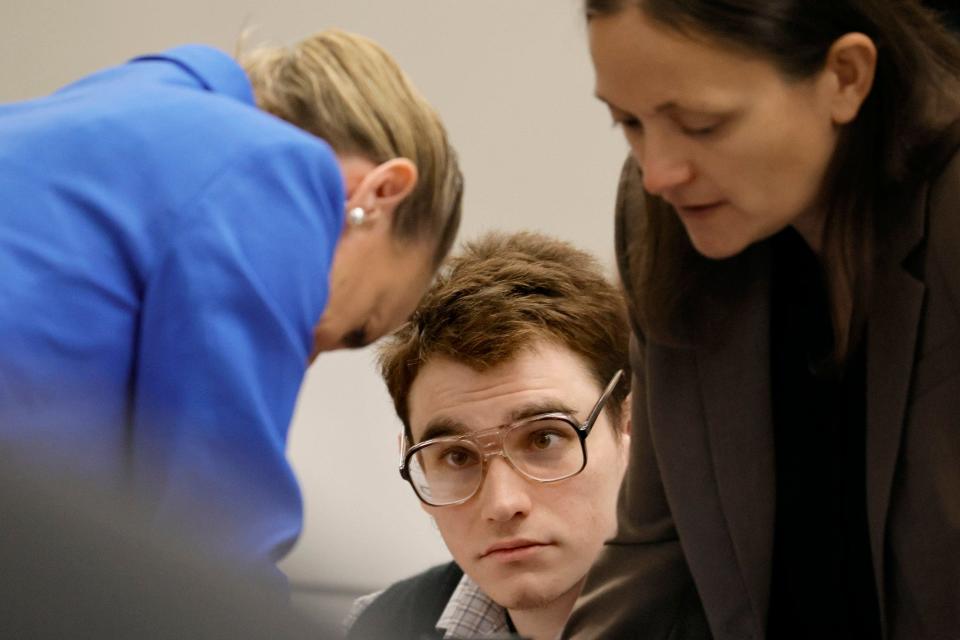
Pre-school teacher describes aggression, animal-like behavior
Susan Lubar taught Cruz when he was 4 years old. Even then, he was aggressive, she told jurors. He'd scale furniture and pace the classroom to avoid other children, curling his hands into paws and hissing when they came near.
He didn't communicate verbally until about halfway into the school year, Lubar said. He only followed instructions with excessive encouragement and often avoided doing what he was told.
No one knew what was causing his behavior, Lubar said.
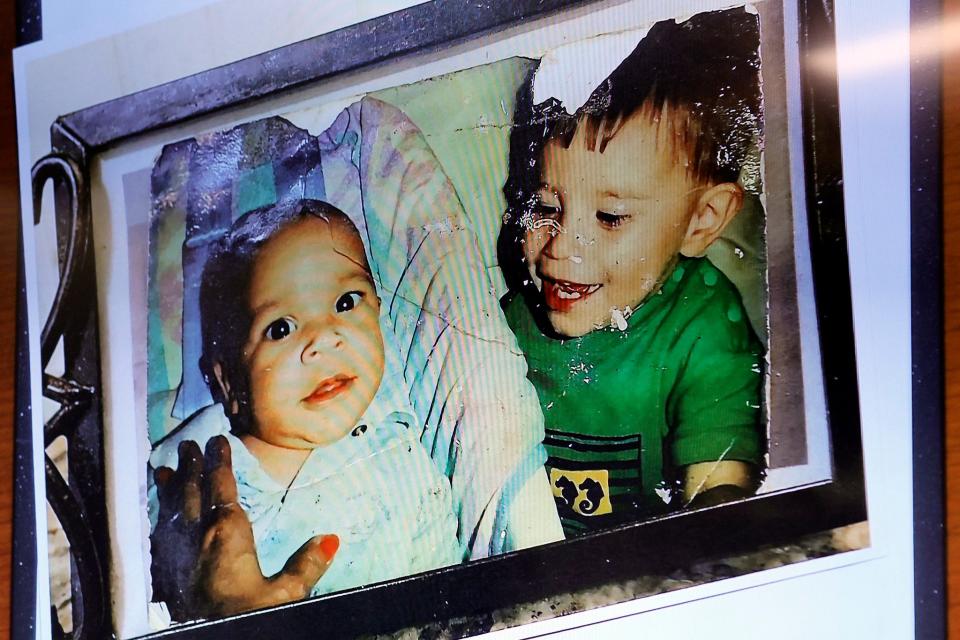
Cruz's biological sister remembers mother's tumultuous pregnancy
Cruz's biological sister, Danielle Woodard, was the second witness called to the stand Monday. Her responses were slow and drawling.
"Are you nervous?" asked Tamara Curtis, Cruz's attorney.
"Overwhelmed," Woodard said.
She said she remembers the small baby bump protruding from the stomach of her mother, Brenda Woodard, as she pumped gas into her car in 1998. Danielle Woodard sat in the back of the car, watching. There was shattered glass on the floor, and a brown-bagged bottle of wine in Brenda Woodard's hand.
Danielle Woodard asked her once she returned to the front seat: Was she pregnant?
"She looked at me and said 'I got raped,' " Cruz's sister said. "She took another swig and turned on the radio."
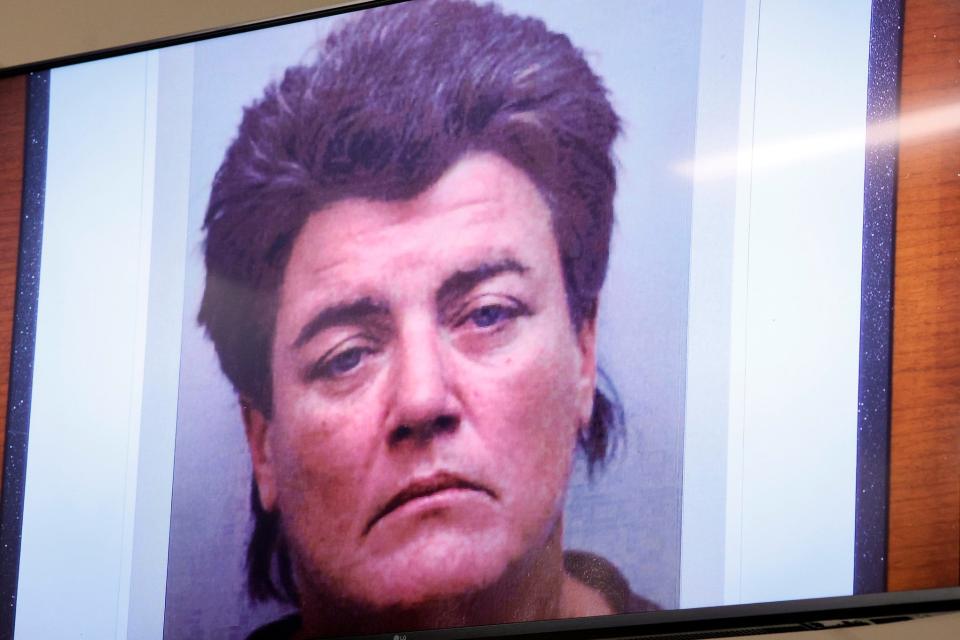
Danielle Woodard said she saw her mother smoke cigarettes and cocaine "like a chimney" while she was pregnant with Cruz. When she needed to pass a drug test, she'd have her daughter pee into a pill bottle.
"Nikolas was developing in her polluted womb," Cruz's sister told jurors.
She became quiet and tearful when the attorney asked if she remembers the day Cruz was born. Danielle Woodard held Cruz that day, she said. He was squirming and small.
"Can we keep him?" she said she asked. Brenda screamed at her to get out of the hospital room.
Why didn't she want to keep the baby? Cruz's attorney asked.
"She had an addiction," Danielle said. "She always put that first."
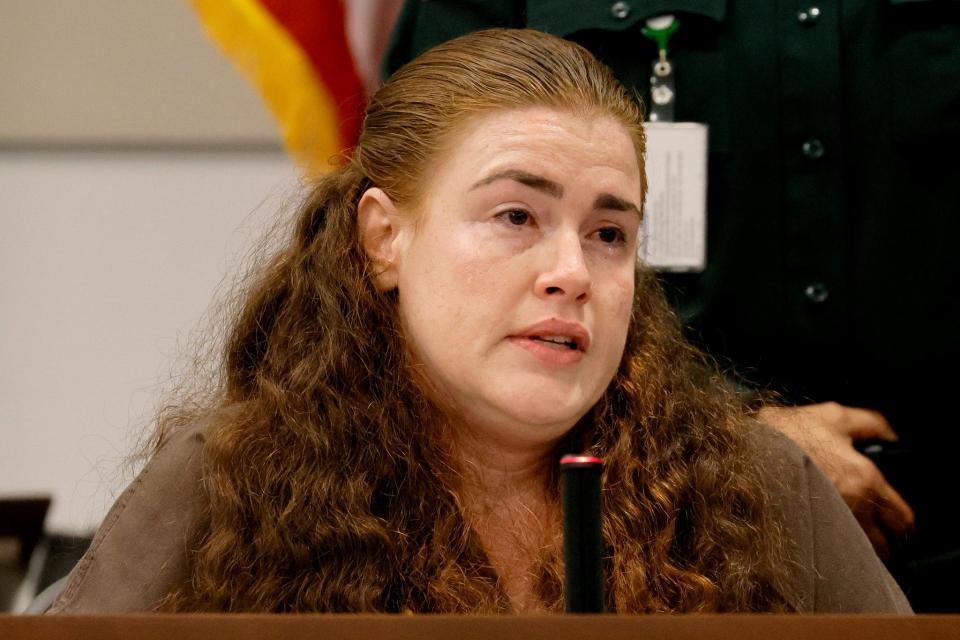
Friend of Cruz's biological mother testifies about substance abuse
Carolyn Deakins, a friend of Cruz's biological mother, was the first witness that the defense team called to the stand. She and Brenda Woodard did "anything we could get our hands on" in the late '80s, she said.
"Snorting cocaine, drinking," she said. "That's what we did every day."
Woodard carried around a Big Gulp cup filled with malt liquor, Deakins said. When Cruz's mother couldn't make enough money stealing and selling steaks, she'd prostitute herself.
"It was quick and easy money," Deakins said.
She said she and Woodard often got high in Woodard's apartment. There was no furniture or food there — just a mattress and a refrigerator. Once, Woodard threw up.
Deakins said she thought she was "drug sick," so she offered her some of her stash.
" 'No, it ain't drugs,' " Deakins said Woodard told her. " 'I'm pregnant.' "
Woodard wasn't concerned about the baby, Deakins said, because she already planned to put him up for adoption.
"She didn't want it," Deakins said. She looked from the public defender to Cruz. "Nikolas, I'm sorry, but that's how it was."

Opening statement: Public defender details Cruz's troubled childhood
Melisa McNeill knew Cruz was a damaged person the first time she met him, she said. But the public defender also said she knows that "wounded and damaged people wound and damage other people," she said, because they're in pain.
It isn't an excuse, she added, but it's something to consider. She quoted Irish poet John O'Donohue: "The beginning often holds the clue to everything that follows."
"We must understand the person behind the crime," McNeill said. "What is the root cause?"
McNeill said she's spent the last four years searching Cruz's past for the answer to that question. She found it in his biological mother, Woodard, who abused drugs and alcohol while pregnant with him.
“He was poisoned in the womb," McNeill said. "Because of that, his brain was irretrievably broken, through no fault of his own."
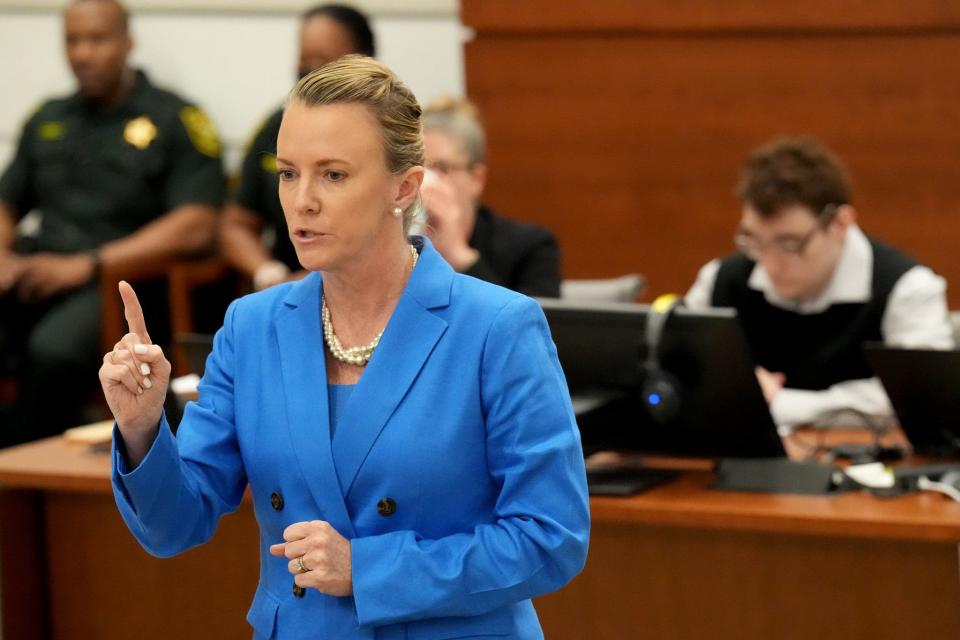
Cruz had a whole slew of developmental delays early on, McNeill said. His head was too big for his body, his ears too big for his head. He didn't play with the other children, or talk to them. He was aggressive.
He saw his first psychiatrist as a 3-year-old, McNeill said, and he'd hide under the doctor's desk until someone wrangled him out 25 minutes later.
The public defender said he acted like a tyrant in school. He would bite, spit, kick, punch and pounce at others. A teacher described him as terrified, filled with anxiety and stress. He didn't know how to communicate, and he didn't understand when people were talking to him.
People didn't know what was wrong with him, McNeill said. At 6 years old, Cruz was medicated for ADHD but continued to slip further behind developmentally.
Jurors will hear testimony that supports a diagnosis of fetal alcohol spectrum disorder . It's known as an "invisible disorder" because it’s often misdiagnosed, McNeill said. As such, Cruz didn't get the treatment, medicine, intervention or support that he needed to combat it. His behavior worsened.
McNeill listed one disturbing incident after another. Cruz had dreams that he was covered in blood, she said. He cut himself. He drank gasoline. He became obsessed with the idea of buying a gun. He brought a weapon to school. He grabbed a cellphone out of his teacher's hand once when she tried to call 911.
Cruz deserves to be punished "without a doubt" for the massacre at Stoneman Douglas, McNeill said toward the end of her opening statement. But she said she's confident that once jurors hear Cruz's story, they'll know that "a vote for life is the right vote."
"Some say the crime itself is enough to impose a sentence," she told them. "You are not those people."
She needs to convince just one juror that Cruz deserves life in prison to upend prosecutors' push for the death penalty.
Hannah Phillips is a journalist covering public safety and criminal justice at The Palm Beach Post. You can reach her at hphillips@pbpost.com.
This article originally appeared on Palm Beach Post: Nikolas Cruz trial: Parkland gunman's teacher describes troubled child

